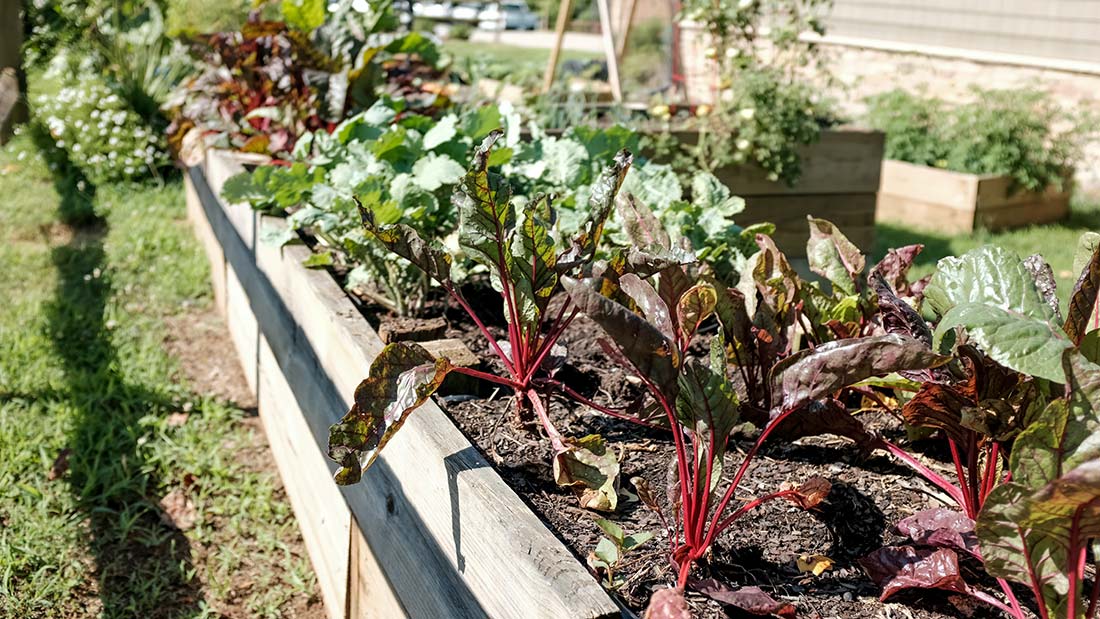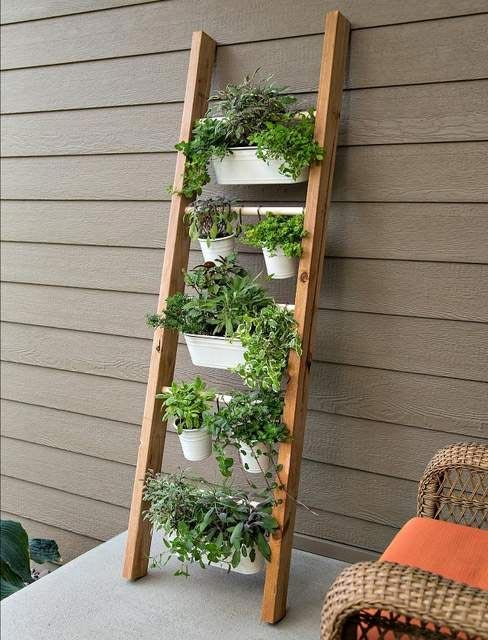A beginner’s guide to vegan gardening

Everything you need to know about starting your own vegan garden with whatever space you have!

Creating and maintaining a successful garden, without the use of animal products, is entirely possible and worthwhile. The vegan alternatives for a healthy garden can be just as effective as their conventional counterparts. If you’re considering your own vegan garden, starting isn’t complex. You can start small and gradually increase as your garden grows in size.
Choosing the right garden for you
If you’re living in the inner city, there’s a good chance you’re in an apartment and don’t own or have access to any garden beds. Luckily there are a variety of different options for city dwellers when it comes to gardening. Balcony gardens or herb gardens are your two best options. Container vegetables allow you to grow in confined spaces with limited space.
Here’s a list in no particular order of the best container veggies for your balcony garden:
- Tomatoes
- Beans
- Lettuce
- Cucumber
- Peppers and Chillies
- Carrots
- Radishes
- Peas
- Eggplant
- Beetroot
Herb gardens are another alternative for confined spaces. You can keep them on your windowsill or in the balcony. In no particular order, here are the best herbs that grow in confined spaces:
- Basil
- Parsley
- Chive
- Fennel
- Dill
- Rosemary
- Oregano
- Lavender
- Mint
- Sage
Start composting to improve soil quality
When you start a garden, the quality of your soil is vital to your plant’s success. Healthy soil will play a large role in the success of your harvests. As your garden grows and ages, you’ll need to maintain the soil quality to ensure harvests don’t deteriorate over time. Your first step is to start a compost. Composting is easy and will also reduce your carbon footprint.
All you have to do is find a container, and start throwing degradable products into it. Things such as fruit, veggies, shredded paper will all work. Over time all these will break down and turn into compost. The final product is what you can use to maintain your garden’s soil. Simply spread one to two inches of compost over your garden beds. This will ensure nutrient rich soil and a healthy garden. Your compost will be ready for use when it’s a rich brown colour, easily crumbling through your fingers.
Deter pests harmlessly
As a beginner gardener you’ll start experiencing the difficulties of pests. Pests can ruin all your hard earned work, deterring them from your garden using non harmful methods is essential. It’s not that these pests want to ruin your garden, they’re just doing what’s natural to them. You must deter them from your garden in an equally natural way.
Diversify what you grow
I made this fatal mistake very early on in my gardening career. The majority of my garden was a certain plant. This can be devastating because a single pest species specific to that plant could devour your entire garden. Be sure to diversity what you grow, so if a specific pest species does arrive, it chews only on a fraction of what you’re growing.
Maintain clear parameters
Rotting fruit and composts are two ways to attract a host of different pests. Have your garden far apart from your compost. So that the pests the compost does attract don’t then migrate to your garden. Same for any fruit trees, if the fruit is falling amongst your garden there’s a good chance a variety of pests will be attracted to the rotten fruit.
Crop rotation
If you’re growing the same plants in the same beds, over long periods of time. Insect pests such as maggots, wireworms or grubs will become accustomed to your garden and start settling in. Rotating your crops will mean pests are constantly moving, this will prevent insect pests being able to greatly populate and ravage a certain area in your garden.
Companion planting
Your garden is a little community, plants should help each other thrive in any way possible.
Certain plants will deter a variety of different insects, herbs are especially effective at keeping insects pests at bay. Companion planting is maintaining a perimeter of insect deterrent plants around your potential harvests. Or you can plant insect deterrent plants in close proximity to the rest of your garden.
Maintain soil quality with green manure
Many traditional gardeners will tell you manure from animal products is essential to your garden’s success, this simply isn’t true and there are a variety of ways to maintain healthy soil without the help of animal products.
Green manure is the process of growing crops specifically to be dug back into the soil. Adding rich nutrients, improving soil structure and water retention. There’s a large variety of different plants you can use for green manure.
Green manure is easy, choose an area of soil, once your chosen plants are fully grown. Chop the foliage and dig the plants into the top 25cm of soil. Leave it for two weeks before planting your next crop, be sure to wait two weeks because decaying plants can hinder other plants’ growth.
Maintain plant growth using natural fertilizers
A majority of fertilizers on the market, are either full of harmful chemicals, or contain animal products. Creating your own can achieve the same job, cost you less and have no negative effects on your natural surroundings.
A good way to create your own fertilizer is to fill a bucket full of weeds, fallen leaves and water. Weeds are especially high in nitrogen and will make perfect fertilizer. Leave the bucket for two weeks with no more than a ¼ full of greens. After two weeks the water will go a brown colour and will start looking like tea. You can now pour it over your garden, feeding your plants with sweet nutrients.
In conclusion
Gardening is a hugely rewarding hobby, that saves you money on your veggies while keeping you active and healthy. It’s something anybody can be doing no matter the circumstances. It’s not a complex process and you’ll soon learn that with a bit of work and patience you can achieve an abundance of results.




